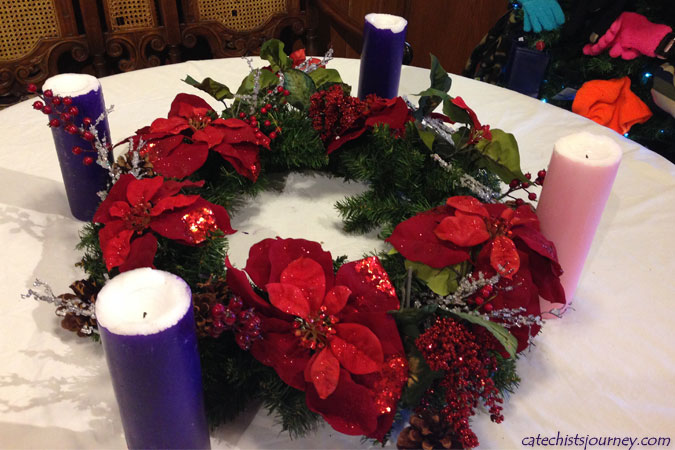
When I was a little girl, my big brothers teased me when I told them what I wanted to be when I grew up: “First I want to be an artist,” I had told them, “then a teacher, then a mommy, then a ballet dancer, and then a nun!” I guess I wanted it all.
Now that I am older, I know that a job and a vocation are different, and part of my job is to help my third graders learn about their vocations. I explain that knowing our vocation helps us participate in God’s building up of the Kingdom of Heaven here on earth. I share that it’s never too early to pray and talk to God about whether you are called to be priest or religious sister or brother, whether you are called to be married, or whether you are called to the single life. At the end of each day we pray to discover our vocation:
Dear Angel ever at my side,
how loving you must be.
Please whisper to your loving child,
what God wants me to be. Amen!
I knew that my primary vocation of being a wife and mother was solidified when my husband-to-be got down on one knee and asked me to marry him. He said that he loved me and that I would make a wonderful mother to our children. I said yes, and we celebrated 31 years of marriage this past summer.
Discovering that my job as a Catholic school teacher was also my vocation took a little longer. As a college student I knew I wanted to be a teacher. One of my first interviews should have been a signal that my vocation was to be a teacher in a Catholic school. A month before graduation, my college invited public school districts in the area to interview us for teaching jobs. I welcomed the opportunity to practice my job interviewing skills, although I wasn’t interested in teaching in a large school district.
My interview went well, and I felt I answered all the typical questions perfectly. But one interviewer threw in a question that took me off guard. He asked me why I wanted to teach in a public school if I had gone to Catholic grade school, high school, and was now graduating from a Catholic college. He had a point. If he had offered me a job on the spot for his big school district, I would have turned it down, though I’m not sure if I knew why.
This past spring I attended the National Catholic Educational Association convention in St. Louis with thousands of other Catholic school teachers. The keynote speaker, Jonathan Doyle, helped me understand why I would have refused that job. He shared that finding your purpose in life—and owning it—allows you to enjoy your life. If you know that what you are doing in life is significant and it is what you feel like you are meant to do, not only does it make you happier, but it is easier to cooperate with God’s plan for you.
Doyle went on to explain that it was no accident that we were Catholic school teachers. We didn’t choose this vocation; rather, God chose us for this vocation. The Holy Spirit is drawing out the gifts that we have so that we can fulfill God’s plan for us. His words really touched my heart. He then shared some quotes from St. John Baptist de la Salle, the patron saint of teachers:
- “God has given you so many graces.”
- “God has chosen you to do his work.”
- “God has chosen you to make him known to others.”
- “You are called like the Apostles to make God known to others.”
- “Young people need good teachers, like visible angels.”
- “God has called you to your ministry.”
- “God entrusts to you his care of the young.”
It finally hit me: I was indeed called to be a Catholic school teacher!
I thank God for my vocation as a wife and mother. And I am especially thankful that God has shown me that being a Catholic school teacher isn’t just a job—it too is my vocation.
How did you discover your vocation as a catechist or teacher? How can you help the students in your classroom discover their vocations?




Hello
I would like to ask you how some one can become a catechist, obtain the certificate